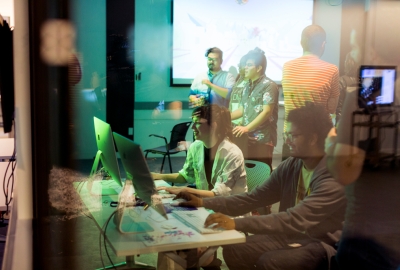Much of critical theory finds its origin in the work of Karl Marx. The purpose of this doctoral seminar is to read key works by Marx, supplemented by some contemporary texts in western Marxist political theory, with the ultimate goal of understanding the various political and philosophical debates with which these texts engage. The course emphasizes Marxism as a political theory, but will also address Marxism as a scholarly methodology for critique applicable to disciplines beyond political theory. Themes include: the commodity, alienation and reification, surplus value, ideology, consumerism, spectacle, empire, feminism, postfordism, community, and communism.
Course #
MCC-GE 3013
Credits
4
Department
Media, Culture, and Communication


